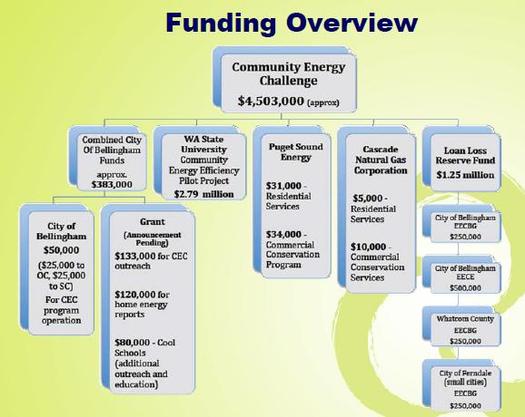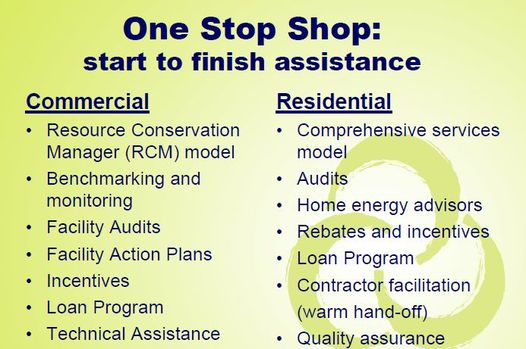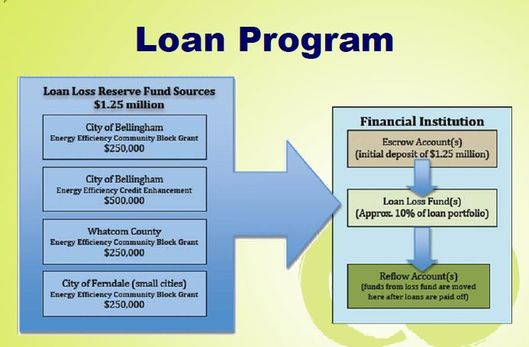| The Whatcom Excavator |
|
|
UPDATE: The Opportunity Council (!) requested $3.5 million more for this to spend in 2012 on their own, in addition to the Dept of Energy project -- from the Northwest Clean Air Agency as part of the NWCAA's "Pitchfest." Did they get it? We'll find out.
Important Background: Department of Energy PowerPoint presentation - this reveals the marketing and loan strategy behind this federal effort that's been packaged as a local and cozy "community" program. More Green Crony Capitalism November 9, 2009 The Heritage Foundation Energy & Environment Section - Heritage Foundation Key Quotation from DOE Powerpoint: “… To fully overcome the barriers that affect a single cluster of potential, a combination of solution strategies will likely be needed” McKinsey and Company, "Unlocking Energy Efficiency in the US Economy," pp 26 See how this works (here's a cheerful 'success story') Stewarding Sustainable Homes ICLEI's fingerprints are all over this - plaques and medals all round, last fall. |
ALERT: The Community Energy ChallengeKnow what this is really about? This is a very expensive and convoluted federal experiment.
The U.S. Department of Energy is pumping $4,503,000 into this pilot program designed to coerce private citizens to make choices they likely would not make without being nudged and steered in a concerted way, in steps, by local project promoters. The approach employs the psychology of shame (packaged as a cheerful "challenge") to modify personal behavior. But it also intends to promote goods and services that may not be urgently needed. (For example, still-useful but not optimally efficient appliances may be sent to the trash heap before the end of their useful life.) And the program promotes borrowing by citizens (many that may be least able to afford loans). Meanwhile, federal spending increases the national debt. Energy customers receive letters that compare their energy use to a pool of "neighbors." But the comparison does not reveal how averages were computed, or factor-in differences like the number of occupants, outbuildings, and other important variables. A conscientious customer who requests an energy audit will be visited by specially coached workers paid to recommend the replacement of appliances and to make home improvements. See "warm hand-off" in the "One Stop Shop" slide below. |
Why is the DOE funneling millions through local government, utilities, banks, and private non-profits? Is there unfair competition with private sector vendors and banks?

This chart shows which players get their piece of the $4,503,000 pie.
Most of the money (72%) is spent on program overhead, grants, and advertising. The balance is held in a loan loss reserve fund, split three ways between Bellingham, Ferndale, and Whatcom County as security for its partner "financial institution."
Small wonder that revenue hungry policy-makers bought into this. It was packaged as "win-win" for them, but at what long term cost to the public? We're already drowning in a sea of national debt. Not their problem, we guess.
Most of the money (72%) is spent on program overhead, grants, and advertising. The balance is held in a loan loss reserve fund, split three ways between Bellingham, Ferndale, and Whatcom County as security for its partner "financial institution."
Small wonder that revenue hungry policy-makers bought into this. It was packaged as "win-win" for them, but at what long term cost to the public? We're already drowning in a sea of national debt. Not their problem, we guess.
"One Stop Shop" with a "warm hand-off" to preferred vendors.

“Partnering” with the usual cast of cronies, county and city government has welcomed the idea of playing banker. It's said this will create green jobs. But most of this program creates government jobs, plus income for non-profits, inspectors, and vendors trained to promote preferred outcomes.
Do you recognize the "three circle" logo? That's Sustainable Connections' logo.
Do you recognize the "three circle" logo? That's Sustainable Connections' logo.
Stimulus money (that increases the national debt) is funneled through local government and its partner "community agencies" and banker. It's "Fannie Mae and Freddie Mac" thinking.

This DOE slide illustrates how Bellingham, Ferndale and Whatcom County will bank federal funds. Who's actually orchestrating this loan program, we do not know. But we wonder why this task is being undertaken while private sector banks and credit unions exist. "The government can offer lower interest rates"? Only with massive overhead subsidy paid from "stimulus." Research indicated that only one bank was selected to be the "Financial Institution." We wonder if any others had the opportunity to compete?
